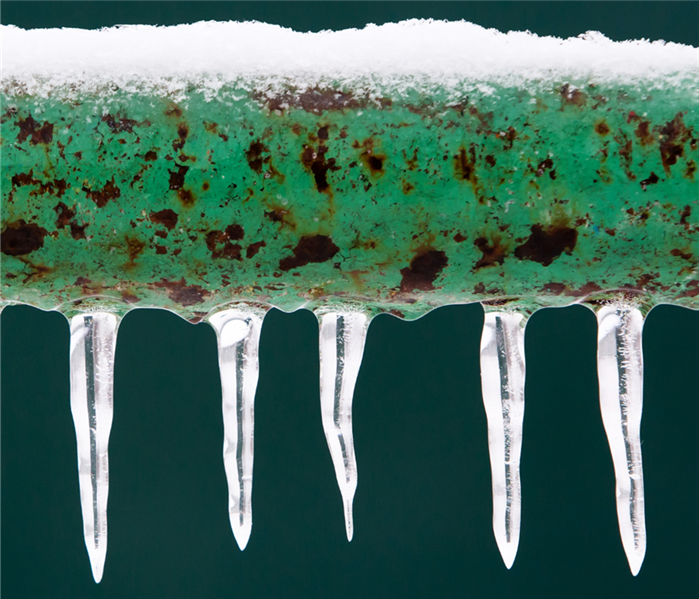Tips for Preventing Pipes from Freezing & Cracking This Winter
11/5/2021 (Permalink)
When temperatures drop into the 20s, water can freeze inside your home’s pipes. If that happens, your pipes can burst, causing flooding and water damage to your home when they defrost. Take these steps to prevent this from happening to you during the colder months of the year.
Why Do Freezing Pipes Burst?
First of all, it's important to understand why freezing causes pipes to burst in the first place. Because water expands when temperatures drop below 32 degrees, ice crystals begin to form inside your water lines. As the water pressure increases, if these ice crystals grow big enough (which happens over time as the weather grows colder), they can make your pipes expand. This puts pressure on water pipes which eventually -- if left untreated long enough -- causes ruptures.
Freezing Pipes Prevention
The first rule of thumb to prevent freezing pipes is to understand at what temperature they can begin to freeze. According to research by the Building Research Council at the University of Illinois, uninsulated water pipes begin freezing when the temperatures outside drop to 20 degrees or below.
If possible, the best way to prevent freezing is to turn up the heat with a space heater or on your thermostat. However, if you can't raise the temperature artificially, then be sure that any exposed pipes are well-insulated. You can insulate your pipes by wrapping them in foam pipe insulation, which is available at most hardware stores.
Consider leaving all interior doors open and cabinets slightly open to make sure the warm inside air can regulate the temperatures inside properly. If any pipes are in the walls, this method helps protect them from freezing.
If you'll be traveling, but you're concerned about freezing pipes, be sure to leave your faucets slightly dripping. This water flow helps prevent the buildup of ice crystals in your water pipes. However, if you'll be gone for long periods of time, it's a good idea to shut off your water completely.
Are Frozen Pipes Covered by Insurance?
Most homeowner and commercial property insurance policies, in general, will cover damage from a frozen pipe that bursts. Coverage usually exists if the policy contains the following or similar language: Coverage is provided when it is determined damage resulted from a “sudden and accidental” discharge from a plumbing source or system (please check your policy or ask your insurance provider for the exact language).
However, your insurance policy may not respond if you did not take the proper precautions on your property first. Follow the tips in this article, and discuss coverage with your insurance provider to protect your home.
And, in case your home's water pipes do burst this winter, SERVPRO of North Atlanta/Buckhead has the team and experience to quickly make your home "Like it never even happened."
Call us today at (404) 261-2925 for immediate assistance 24/7/365.




 24/7 Emergency Service
24/7 Emergency Service
